Woman, 25, stunned to discover her ‘depression and chronic exhaustion’ was genetic heart failure
When Sheffield woman Katie Denial, 32, gained 6st in four months despite joining a slimming club after a break-up, she was suspected of comfort eating
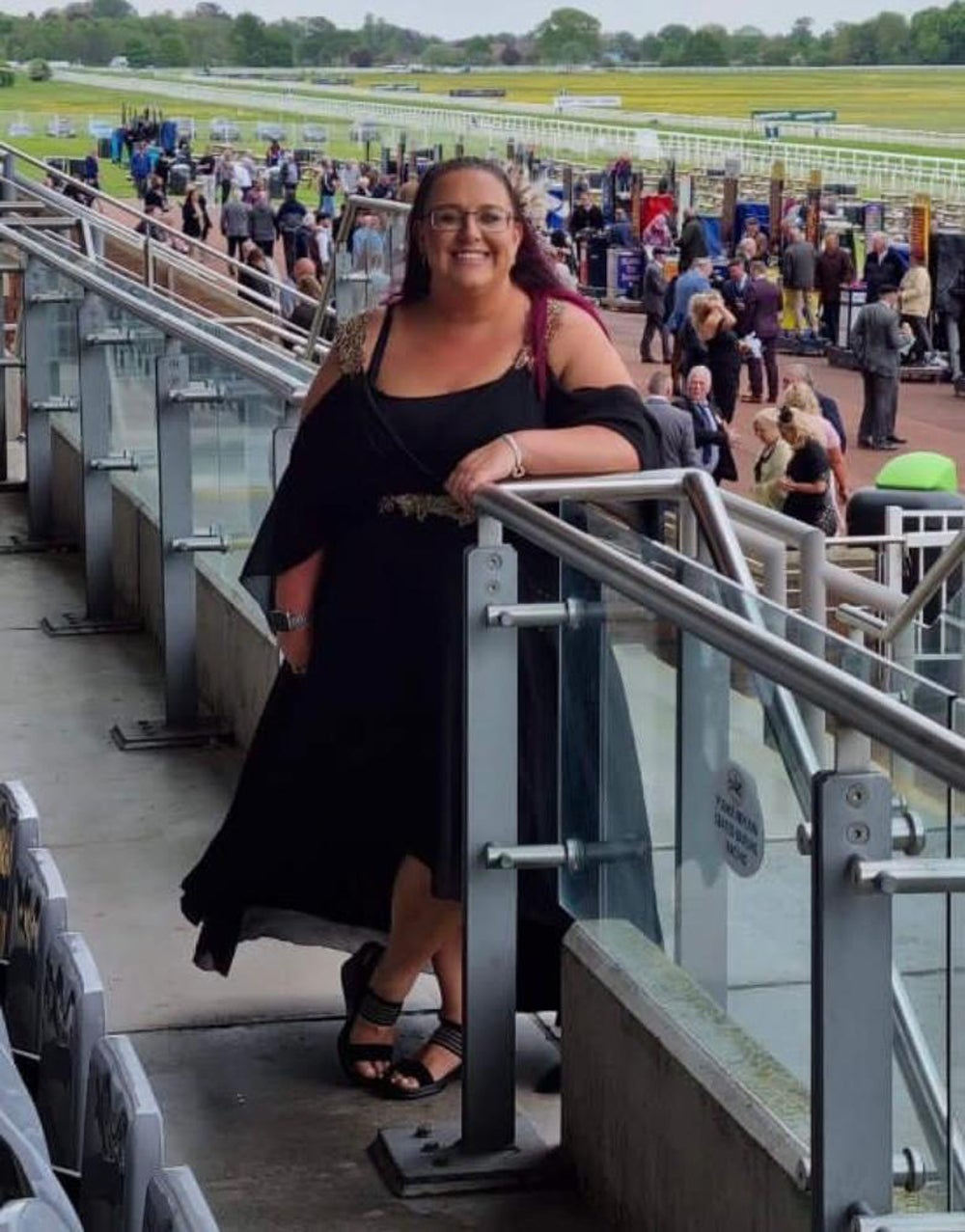
Your support helps us to tell the story
From reproductive rights to climate change to Big Tech, The Independent is on the ground when the story is developing. Whether it's investigating the financials of Elon Musk's pro-Trump PAC or producing our latest documentary, 'The A Word', which shines a light on the American women fighting for reproductive rights, we know how important it is to parse out the facts from the messaging.
At such a critical moment in US history, we need reporters on the ground. Your donation allows us to keep sending journalists to speak to both sides of the story.
The Independent is trusted by Americans across the entire political spectrum. And unlike many other quality news outlets, we choose not to lock Americans out of our reporting and analysis with paywalls. We believe quality journalism should be available to everyone, paid for by those who can afford it.
Your support makes all the difference.A residential support worker who was so exhausted and breathless she had to lie down in a car park before a funeral discovered her “depression” was in fact severe heart failure brought on by a faulty gene.
When Katie Denial, 32, saw her weight balloon by a staggering 6st in just four months soon after her eight year relationship ended – despite joining a slimming club with the intention of getting a “revenge body” after her break-up – her doctor suspected she was comfort-eating because of depression due to heartbreak.
Katie, of Sheffield, South Yorkshire, could not shift the excess weight, was permanently worn out and suffered with episodes of double incontinence – all indicating to her that something was very wrong.
Now a patient educator for a charity working to help people with heart failure, she said: “I had been told it was to do with my mental health, although I’d never had any problems before.
“It was only when my mum and my auntie saw I was so unwell and took me to A&E that I was diagnosed within four hours.”
Now devoted to raising awareness of the symptoms of heart problems, to Katie’s horror, she was “dangerously close to death.”
She was suffering with heart failure, her liver and kidneys were also failing, she had a blood clot in her left ventricle and two pulmonary embolisms or blocked vessels in her lungs, which were also filled with fluid.
Katie has now been diagnosed with a mutation of the TTN gene, which provides instructions for making a large protein in the body called titin. This had, in turn, caused dilated cardiomyopathy – a heart muscle disease where the organs chambers thin and stretch – which had triggered her other health issues.
She said: “Before this happened, everything was pretty normal.
“I had a great but very physical job in a unit for children with special needs and challenging behaviour.
“In 2014, I started feeling unwell and had a cough and cold I couldn’t get rid of. I had a few trips to the doctor, was told it was a chest infection and was tried on all these different antibiotics, even being tested for asthma.
“Then the weight gain started. I gained 6st in just 4 months even though I was following a slimming club plan to the letter.”
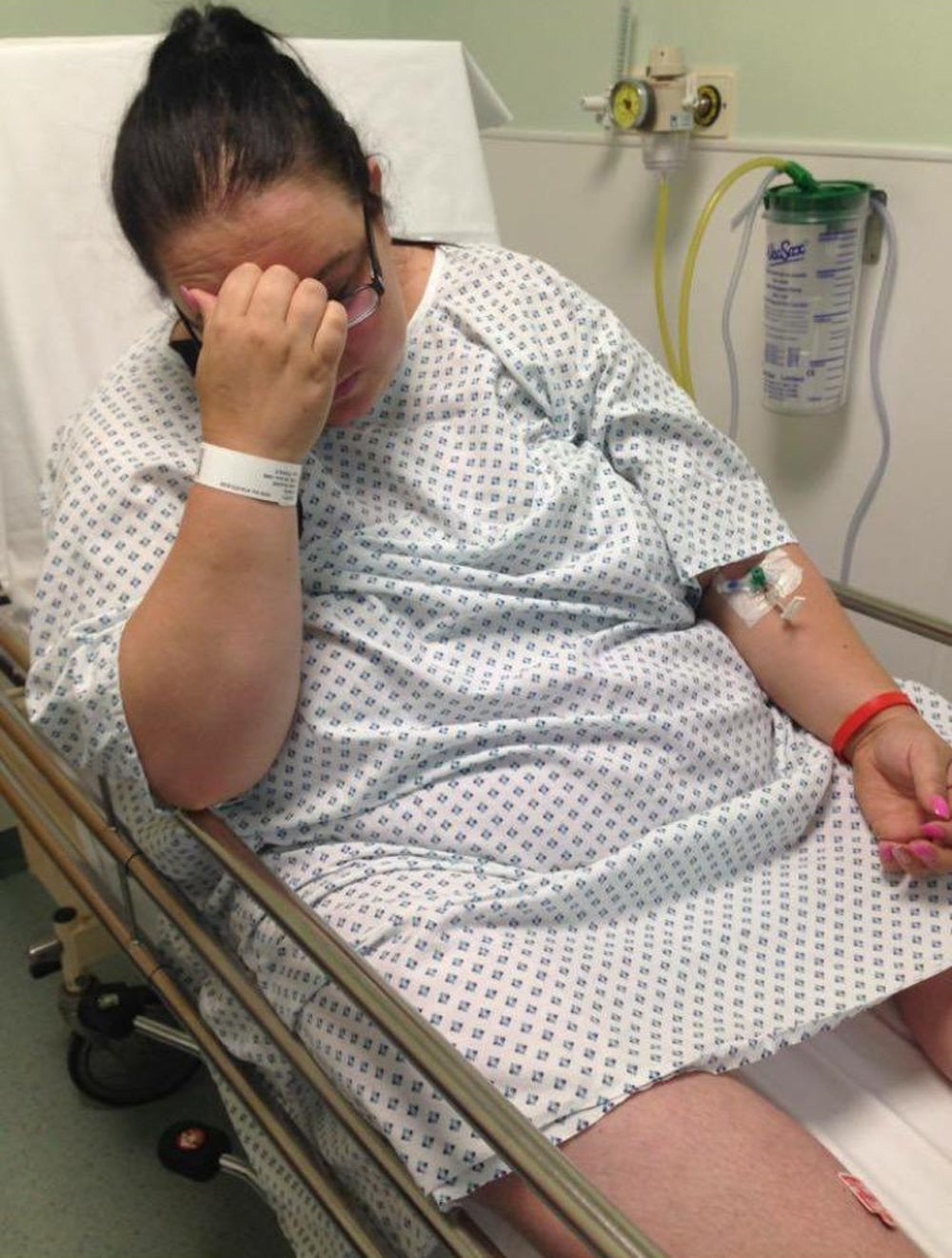
She added: “Alongside the rapid weight gain, I had heart palpitations and was always breathless to the point that minimal exertion would tire me out.
“I had just ended an eight year relationship. We’d lived together and the doctor thought I was comfort eating. ”
But, towards the end of the year, her symptoms kept getting worse.
She recalled: “I attended a funeral for one of the children I’d been looking after and I had to lie on the car park floor to catch my breath as I was so tired, just from walking from the car.”
But still, Katie says she was treated more for mental health problems than physical ones.
By early 2015, she says all aspects of her life – from work to her relationship with her family – were suffering because of her poor health.
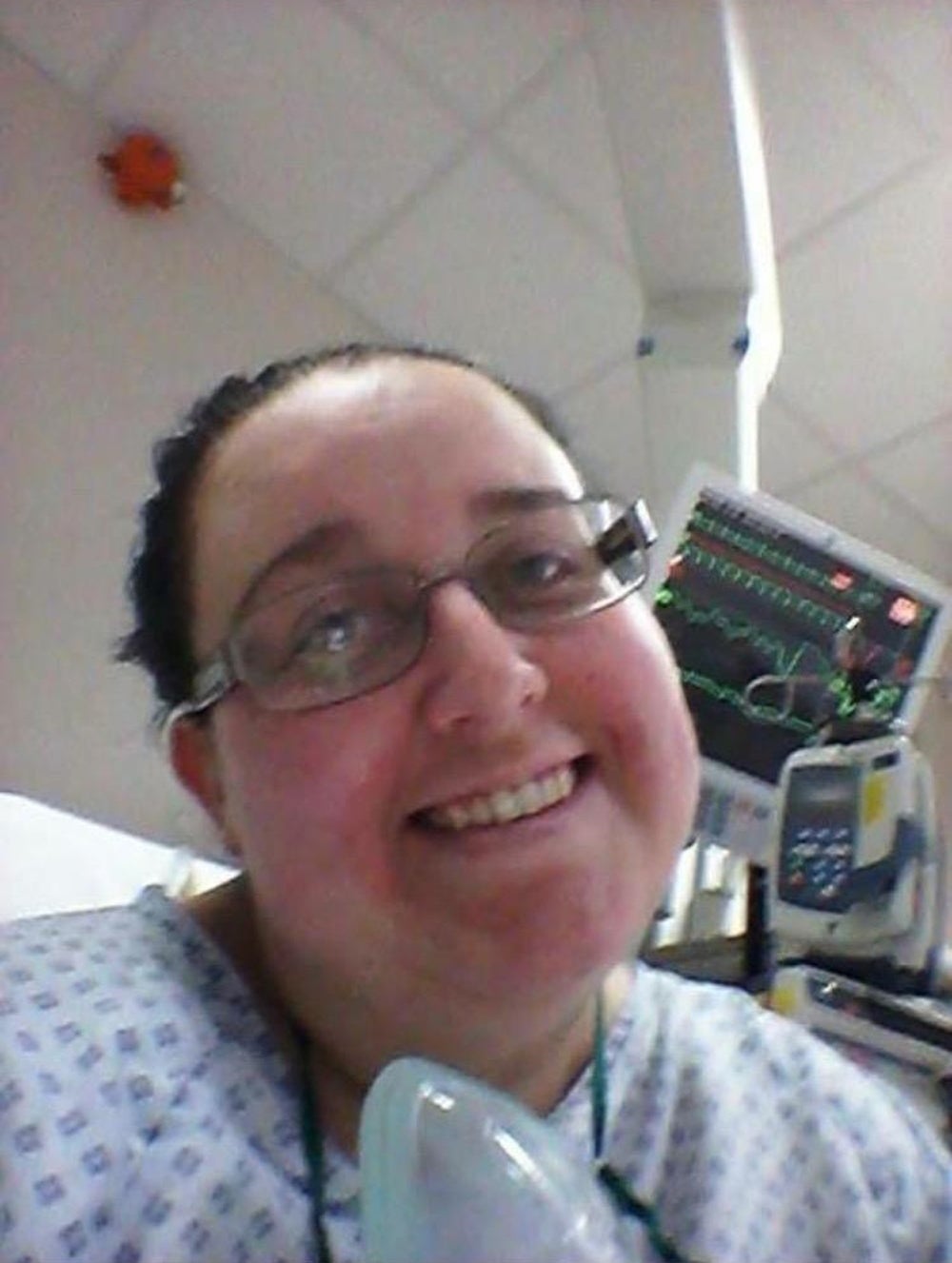
She said: “My family even held an intervention because they thought I was secretly eating.”
Then, one day in March 2015, after losing bladder continence walking upstairs and then losing control of her bowels sitting on the sofa, she called her mum in despair.
She said: “I called my mum and my auntie and they called 111.
“The woman on the phone at 111 asked me to breathe properly. I said, ‘I am’ and she said she was sending an ambulance.”
Katie arrived at Sheffield’s Northern General Hospital A&E and was immediately seen by a crash team, leaving her sister, a nurse, in no doubt that she was seriously ill.
Katie’s heart, liver and kidneys were failing and she was rushed to the coronary care unit.
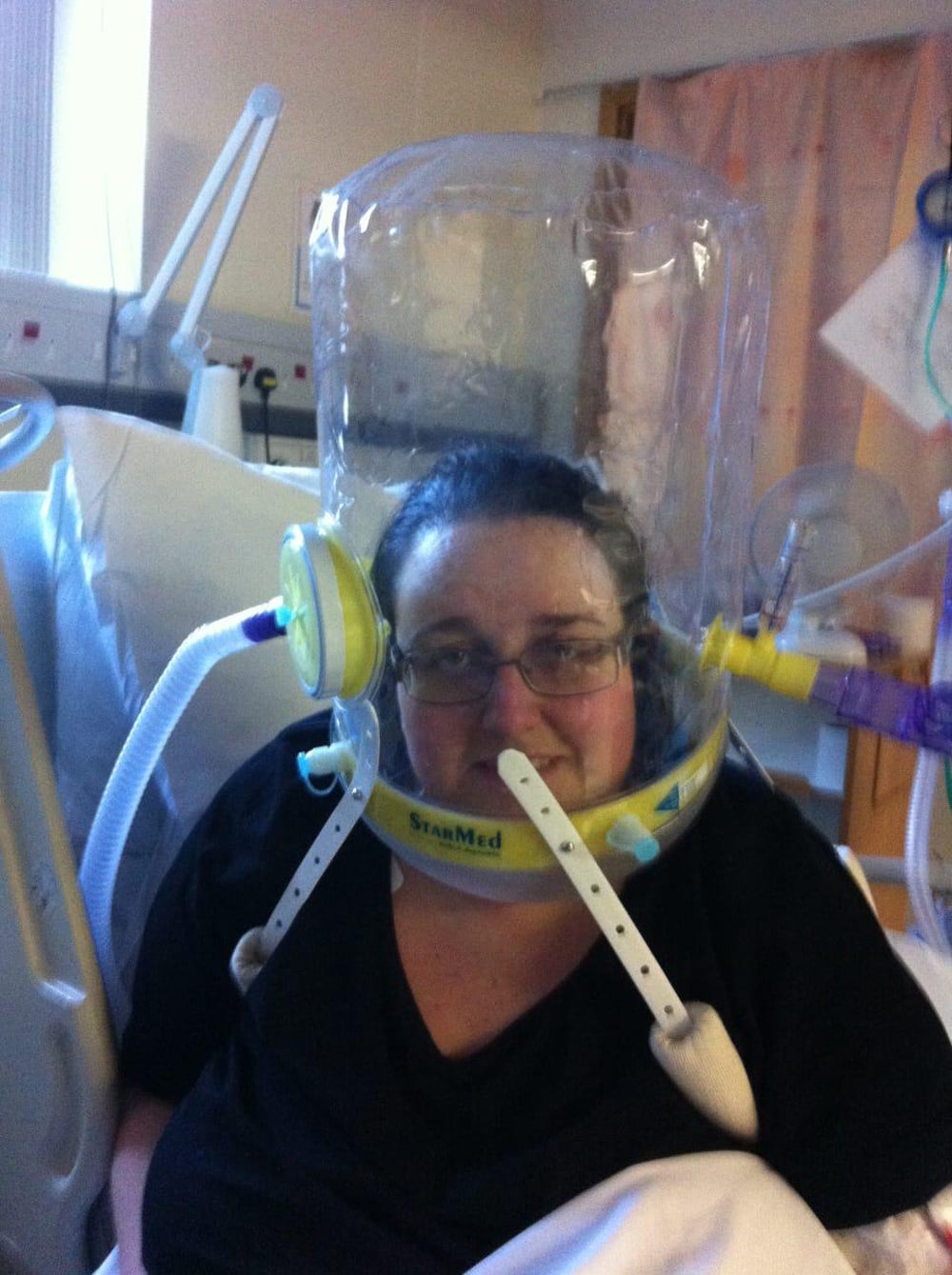
She said: “I was given morphine and don’t remember much more. I was out of it on the medication for weeks.
“But I know from my family that it was touch and go whether I’d survive. I caught pneumonia, the oxygen they were giving me was at the maximum, but I wasn’t getting any better.
“The next step was to intubate me – a procedure to help save a patient’s life if they can’t breathe properly – but they didn’t think I’d survive.”
The turning point came when, despite going into respiratory arrest, doctors managed to successfully drain three litres of fluid from Katie’s lungs, meaning she could breathe again.
She said: “From that point on, I started feeling better. Doctors were than able to get my medication right for my heart and the other issues started to get better.”
But, due to be a bridesmaid for her sister just two days after her respiratory arrest, instead she had to watch the service on FaceTime.
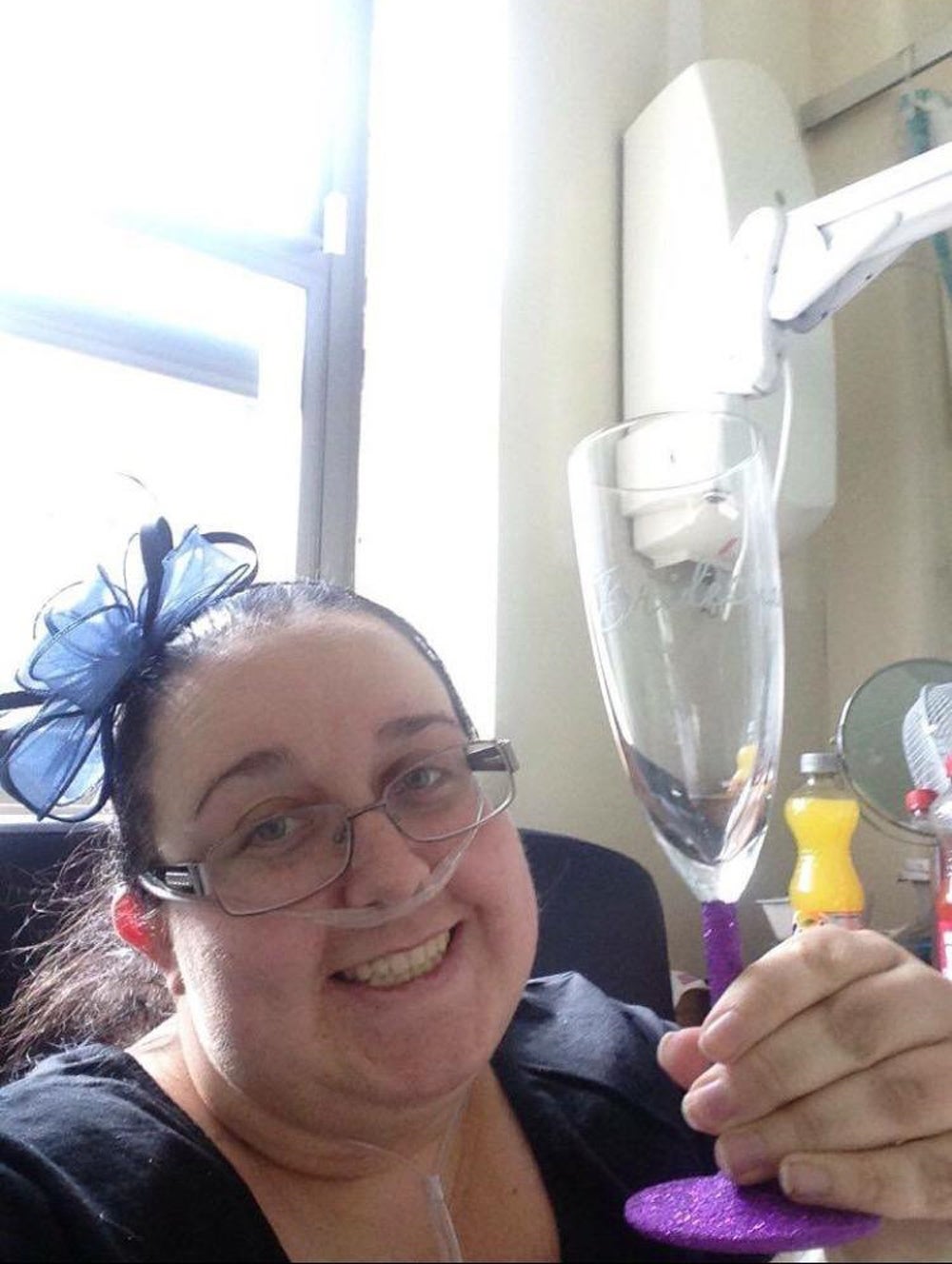
She said: “She’d asked me if she should cancel and I said no. I ended up on FaceTime with my fascinator on.
“It should have been a really difficult day, but I was so unwell I barely registered.”
After two months in hospital, Katie was finally well enough to be discharged, although her weight changed forever.
A 5ft 1in size 18 before she was ill, she ballooned toa size 34 to 36 at her heaviest, which was due primarily to water retention caused by the heart failure, But, even now on diuretics, she is a size 22.
Unable to do the job she loved, she had to leave and she remains heavily medicated for life.
Doctors have also advised Katie not to have children, for fear of the impact of her medication on a pregnancy and the fact that the stress on her body could kill her.
When I was 25 and told I had heart failure, I thought only old people had that. But it happened to me.
But Katie, who remains upbeat, said: “I’m very, very lucky to have the support of my amazing family. I don’t miss out on anything.
“My two nieces send me second Mother’s Day cards and my sister invited me to all her scans.”
Five years ago, during one of her routine medical check-ups, Katie was introduced to the Pumping Marvellous Foundation, a UK-based patient led heart failure charity.
And, through them, she has become a patient educator, devoting herself to supporting people with heart failure, attending conferences to improve NHS treatment and dispelling myths about the condition.
She said: “My mum remembers in hospital being told that people with health like mine didn’t last more than 10 years.
“I now know, through working with Pumping Marvellous, that’s not true.”

She added: “I’ve seen people that live 30, 40, 50 years.
“I can do everything I want to but just at a slower pace.
“I still have some weight on and the breathlessness and fatigue are still there, but I’m quite active.”
While her prognosis is unclear, Katie is also determined to live a fun-filled life.
Katie as she is now (Collect/PA Real Life)She said of her work with the charity: “Our aim is that when you walk in to the GP they don’t just look at your age, your size, your gender and come to conclusions.
“When I was 25 and told I had heart failure, I thought only old people had that. But it happened to me.”